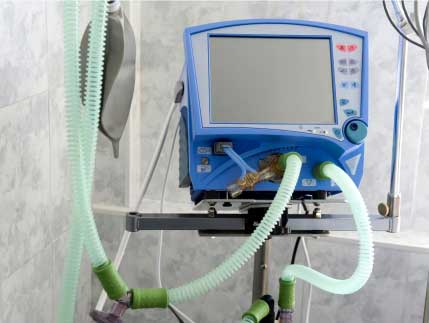|
Polymers for Prevention and
Cure
The role plastics play in
improving health and safety
|

Drashti Shah
Freelance Writer and Strategist & Business Manager, Shaili
Endoscopy |
Even before COVID 19 came along and the
use of medical disposable plastics for PP, PE, PC,
ventilators, thermal scanners, and disposables like
respirators, gloves, masks, etc. drastically increased -
medical plastics played an important role in improving
health and safety.
While the medical device industry
started with a heavy dependence on glass, rubber, and
metal-think glass IV bottles, metal operating instruments
susceptible to rust, and rubber tubing-the development of
plastics from 1930s enabled a complete revolution in how
medical devices were |
made. From using polyvinyl chloride(PVC) for IV bags and
tubing to fluoropolymers for IV catheters, medical plastics
have revolutionized the way plastics are used for healthcare.
Theyíve not only made for safer, but also faster and more
affordable healthcare and operational practices.
Letís have a look into the role medical
plastics play in improving health and safety.
1. As a disposable replacement for
reusable medical devices and instruments to prevent infection
Many a times reusable, or multiple use,
medical devices and instruments pose a genuine threat to
patients because of improper cleaning and care. Because of the
complex design of some instruments, even after following the
manufacturers instruction, microscopic human remains can
remain lodged in the equipment. When an item is used only
once, it cannot transmit infectious agents to subsequent
patients. Thus saving a patient from ill health or life
threatening communicable diseases.
Because of the wide variety of plastics and
their inexpensive nature, plastics started being used more and
more as a disposable alternative for infection control. These
disposable medical devices generally depend on
injection-molded plastic assembled via various methods in
sterilized clean rooms. In a device such as a syringe that
must undergo extreme pressure, polypropylene is used because
of their strength. PVC can also be used because of its
flexibility. Some other common examples are
hypodermic needles, syringes,
applicators, bandages and wraps, drug tests, exam gowns, face
masks, gloves, suction catheters, and surgical sponges.
Each day, more healthcare professionals are
switching from reusable instruments to disposable, single-use
ones.
2. In medical packaging
Everyone knows how important it is for
medical instruments to be contaminant free, rust free, and
completely sterilized before their introduction into a
patientís body. These days, medical instruments and devices
reach their intended destination (hospitals and clinics) via
multiple handlers, multiple channels and sometimes after an
extended transportation period. Now, itís more important than
ever to have appropriate packaging for the safety of medical
products. This is where medical packaging
comes in. Plastic packaging
materials like Medical polymer films and barrier packaging
shield products from exposure to ambient conditions and
protect them from vibration, stress, magnetic fields, and
compression. Expanded polystyrene (EPS) reinforces reliability
and wards off contamination. Itís also considered nontoxic.
Polymer packaging is one of the many
important reasons healthcare workers and patients can remain
protected.

3. As diagnostic tools for preventing
diseases
It is widely agreed that itís better to
prevent diseases and health problems using early diagnosis
rather than treating them afterwards. From using plastic
labware for testing blood, urine or other bodily fluids and
tissues for an effective early diagnosis of diseases (like
diabetes, kidney diseases or other metabolic and non-metabolic
diseases) to using plastic in diagnostic kitsplastics have
come a long way. If a patientís condition is diagnosed
correctly, the patient can avoid the effects of a fully
engaged condition and with early treatment the disease may be
completely avoided.
4. In minimally invasive surgeries
With the advent of plastics and plastic
engineering, treatment that could earlier be done only by
using open surgery can now probably be done using medical
plastics. For example, traumatic open heart surgery for
blocked arteries has been replaced with minimally invasive
surgery involving plastic heart catheters. Same goes for
blockages in various other parts of the body. Treatment and
recovery time has been drastically cut in half. So has the
cost of post-operative care.
Besides all the general implications of
polymers in health and safety mentioned above, they also play
a role as suture materials, tissue adhesives, and vascular
grafts, materials for cosmetic implants, dental composites,
contact and intraocular lenses, and much more. The use of
polymers in medicine is vast and innumerable. And with the
growing technology and research their importance in healthcare
and safety will only increase.
Drashti Shah is a content writer and
strategist with an educational background in entrepreneurship
and management. After working full time as a business manager
at Shaili Endoscopy, she now focuses her attention on helping
businesses and publications around the world make sales and
connect with their audiences..
|
